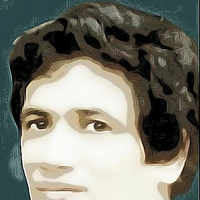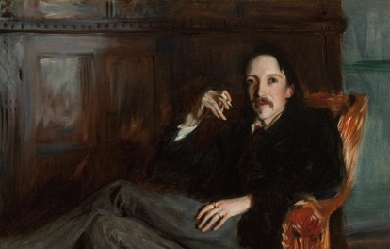
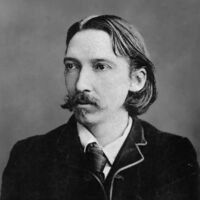
Robert Louis Balfour Stevenson (13 November 1850 – 3 December 1894) was a Scottish novelist, poet, essayist and travel writer. His best-known books include Treasure Island, Kidnapped, and Strange Case of Dr Jekyll and Mr Hyde. A literary celebrity during his lifetime, Stevenson now ranks among the 26 most translated authors in the world. He has been greatly admired by many authors, including Jorge Luis Borges, Ernest Hemingway, Rudyard Kipling, Marcel Schwob, Vladimir Nabokov, J. M. Barrie, and G. K. Chesterton, who said of him that he “seemed to pick the right word up on the point of his pen, like a man playing spillikins”.
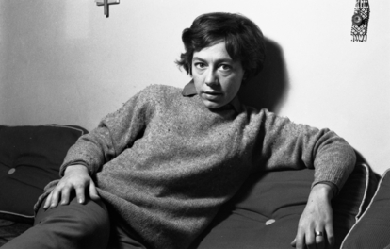
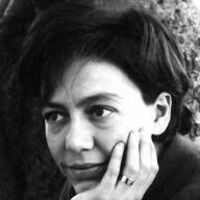
Flora Alejandra Pizarnik (Avellaneda, 29 de abril de 1936 – Buenos Aires, 25 de septiembre de 1972) fue una poetisa, ensayista y traductora argentina. Estudió filosofía y Letras en la Universidad de Buenos Aires y pintura con Juan Batlle Planas. Entre 1960 y 1964, Pizarnik vivió en París, donde trabajó para la revista Cuadernos y algunas editoriales francesas, publicó poemas y críticas en varios diarios y tradujo a Antonin Artaud, Henri Michaux, Aimé Césaire e Yves Bonnefoy. Además, estudió historia de la religión y literatura francesa en La Sorbona. Tras su retorno a Buenos Aires, Pizarnik publicó tres de sus principales volúmenes: Los trabajos y las noches, Extracción de la piedra de locura y El infierno musical, así como su trabajo en prosa La condesa sangrienta.
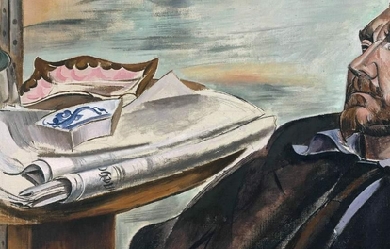
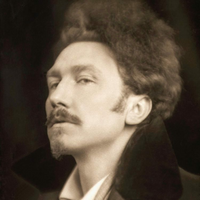
Ezra Weston Loomis Pound (30 October 1885 – 1 November 1972) was an American expatriate poet, critic and a major figure of the early modernist movement. His contribution to poetry began with his promotion of Imagism, a movement that derived its technique from classical Chinese and Japanese poetry, stressing clarity, precision and economy of language. His best-known works include Ripostes (1912), Hugh Selwyn Mauberley (1920), and his unfinished 120-section epic, The Cantos (1917–1969). Working in London in the early 20th century as foreign editor of several American literary magazines, Pound helped to discover and shape the work of contemporaries such as T. S. Eliot, James Joyce, Robert Frost, and Ernest Hemingway. He was responsible for the publication in 1915 of Eliot's “The Love Song of J. Alfred Prufrock,” and for the serialization from 1918 of Joyce's Ulysses. Hemingway wrote of him in 1925: “He defends [his friends] when they are attacked, he gets them into magazines and out of jail. ... He writes articles about them. He introduces them to wealthy women. He gets publishers to take their books. He sits up all night with them when they claim to be dying... he advances them hospital expenses and dissuades them from suicide.”
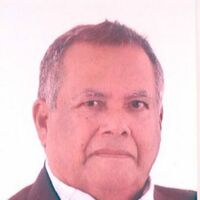
Reinaldo Bustillo Cuevas nació en San Juan Nepomuceno, Colombia, hijo del poeta Ismael Bustillo Angulo y Doña Elena Cuevas Arrieta, hija a su vez del Medico Honoris Causa Don Manuel Cuevas Martínez. Fue profesor de Matemática y Literatura en La Normal Superior para Señoritas Mercedes Elena de Pareja; en la Concentración de Educación Media Diógenes Arrieta; y en el Colegio de Bachillerato Silvia S de Arrieta donde fungió de rector. Fue elegido Diputado a la Asamblea de Bolívar por el partido Nuevo Liberalismo, comandado a nivel nacional por el mártir Luis Carlos Galán Sarmiento. Ha publicado tres poemarios: “Te Espero en la Orilla del Recuerdo”; “Migajas de Amor” y “El Cielo de mi Tierra es Diferente”; un ensayo: “Diógenes Arrieta, Guerrero de la Pluma y la Palabra”; es autor de numerosos poemas, cuentos y ensayos, publicados en Revistas Nacionales y Extranjeras; colaborador del diario “La Libertad de Barranquilla”; de “El Espectador” de Bogotá”; Letra Digital” del Uruguay; Symbolos de México D.F; “Comparto mi Cultura” de Argentina; ha sido traducido al portugués por Urda Alice Klueger; referenciado por Jaime González Sánchez catedrático de la Universidad Santa Cruz de la Sierra de Bolivia por el Trabajo “Moral Antropológica“; lector invitado varias veces por la Radio La Quebrada de Argentina en el “Programa Una Noche Inolvidable”; Mención Especial de SADE (Sociedad Argentina de Escritores), con el soneto Mi Terruño, dedicado a San Juan Nepomuceno, en el Concurso Internacional del Soneto en Dolores; Miembro del Club Internacional de Escritores “Palabra sobre palabra” de España, donde fue Creador del “ Grupo Amantes del Soneto”, adscrito al Grupo PsP y designado como profesor de CEL ( Centro de Estudios Literarios). Obtuvo el primer lugar en el Concurso Internacional de “Un Soneto Para Soria- España”, convocado por “Amistad Numancia” con el propósito de exaltar los méritos heroicos de Numancia, ciudad celtibera, que no pudo ser tomada por las armas del Imperio Romano en el sitio que le infligió en el 133 antes de Cristo , sino que únicamente por un asedio de dieciocho meses se doblegó ante seiscientos mil legionarios, bajo el mando del nieto del Escipión el Africano, Publio Cornelio Escipion Emiliano. Aceptado como Miembro de SELAE (Sociedad de Escritores Latinoamericanos y europeos) con sede en Milán- Italia y de donde es colaborador; y Embajador ante los Escritores Colombianos. Últimamente fue aceptado como colaborados del Blog Corazón del verbo de Sevilla- España, donde publico el soneto “El COLIBRÍ” Y DE LA Revista ALDABA de Sevilla- España. EL CIELO DE MI TIERRA ES DIFERENTE Por Jocé Daniels García El Cielo de mi tierra es diferente es uno de los buenos libros de poesía que en los últimos tiempos ha caído, por voluntad de las musas, en mis manos, y como todos los libros de Reinaldo Bustillo Cuevas lleva el estigma indeleble de quien a través de los años conoce las leyes de la poesía clásica y sabe cuál es la música, el tono y la melancolía que debe llevar un verso libre. Desde los primeros poemas fluye ese remolino lírico y entonces observamos que detrás de bambalinas, las metáforas ocultan un código referido a San Juan Nepomuceno. Demuestra como todo buen aeda que cuando quiere algo lo imagina, lo crea y lo eterniza con su pluma, donde lentamente aparece el ingenio y la imaginación, la gracia y la fantasía, la sutileza y el conocimiento de la naturaleza humana, como un hijo de aquellos campos florecidos, como un hijo del espíritu errante de Trino el brujo el cantor de los Montes de María. El Soneto como la máxima expresión del género poético, desarrollado por los poetas castellanos desde Félix Lope de Vega Carpio hasta el caballero del Soneto, don Miguel Rasch Isla, y que en nuestro país ha tenido tantos seguidores, también tiene un espacio en la poética de Bustillo Cuevas. Son Sonetos de Mentira en donde surge una poesía límpida que consolida su estilo personal y como las flautas al viento que cantan el preludio al trinar de los pájaros, Bustillo Cuevas, con sus marcadas influencias piedracielistas, modernistas y románticos pergeña una poesía que se gesta en una realidad vivida, con nombres propios y compromete el paisaje del San Juan de sus recuerdos, su entorno humano y lo viste con las mejores galas de la belleza natural. Conocí a Bustillo Cuevas en las mismas circunstancias en que se conocen todos los poetas de este mundo, una tarde de otoño cuando nos disponíamos a develar los secretos enterrados en una de las criptas del viejo mausoleo donde se decía estaban los versos más bellos de Diógenes Arrieta y que había escrito en tiempos en que las doncellas que buscaban destino con sus multicolores miriñaques coqueteaban muy cerca de donde estaban los otrora empresarios del tabaco. Desde aquellas lluvias hasta nuestros días me he deleitado con sus poesías, bellas tristes, alegres y frescas, libres de estridencias y ambages retóricos, cuyos antecedentes se encuentran sumergidos en otros grandes poetas de San Juan Nepomuceno. Sus versos contrastan con la poesía frívola, cursi y floja de algunos poetas de nuestro tiempo que en medio de la manigua de una ciudad tan anquilosada en material cultural como Cartagena surgen como una gran cártel con sus turiferarios y corifeos para conformar una sociedad de elogios mutuos y así endilgarse epítetos sonoros y coronarse de laurel y presentarse en el panorama intelectual como la pléyade de los elegidos. Organizan concursos y eventos y como en la corrompida Roma de Nerón tocan la lira del triunfo, se ríen de sus propias pilatunas, y al igual que los zoilos de la desgracia, bautizan y excomulgan, pontifican con sus poesías tan débiles que se desgranan en el cernidor de la crítica para quedar regados en el solar de los infortunios. He ahí la diferencia. Bustillo Cuevas con sus versos libres ruge y avasalla, sin facilismo o ilusorios, sin la veleidad cotidiana que ha invadido los fértiles campos de la poesía. En El Cielo de mi tierra es Diferente nos topamos con versos acrisolados que se riegan en el ambiente como un ramillete multicolor y dejan efluvios agradables al espíritu. Gracias a Dios y a Trino el Brujo, aún quedan buenos aedas. Benéfica influencia del soneto en la poesía Libre Artes, Artes literarias, Poesía Rafael Núñez Moledo, poeta autor del Himno Nacional de Colombia y Presidente de le Republica, alguna vez dijo: El cerebro mana el pensamiento como la caña miel. Sin justificar la verdad científica de esta expresión quiero tomar el fundamento metafórico del mensaje para colegir con él, que cada vez que el hombre se expresa, lo hace en armonía con lo que abunda en su cerebro; y que, por lo tanto, el poeta cuando habla hace poesía. Le oí decir a alguien, en alguna ocasión, que poesía es el modo natural de expresarse el vate. Todo lo anterior para decir que la Poesía Libre, como su mismo nombre indica, es poesía; y afirmar, sin el más mínimo temor de desacertar, que en esta forma de poesía se han escrito piezas trascendentales de la Poesía Universal. Pero pido licencia para hacer algunas elucubraciones, de las que respondo sin comprometer a ninguna Escuela y menos a algún autor, sobre lo que considero justificó, en parte, la poesía Libre. Séame así mismo permitido hacer uso de un símil para encontrar el sendero expedito que me conduzca a demostrar la hipótesis que pretendo exponerles. Imaginemos a un malabarista, que cansado de aumentar el número de objetos que lanza, al aire, describiendo un arco, para recibirlos con la otra mano, resuelve tomar objetos de diferentes pesos, ya sea por su tamaño o por el peso específico de los materiales de que hace uso. El público que observa, se siente incapaz de distinguir a simple vista el peso relativo de cada uno de los objetos que forman el arco armonioso del artista. Así el poeta que cansado del isosilabismo resuelve versificar con versos anisosilábicos, no olvida nunca el ritmo, que es en esencia un retomar el concepto griego del uso de los pies, concepto este merecedor de suma atención, para comprender la musicalidad de cada idioma. Decimos, pues, que la poesía versolibrista, consistió en sus orígenes, en el abandono del isosilabismo, pero cada vez que hizo uso de un verso de determinado número de sílabas, su autor se sintió comprometido a cumplir con el ritmo propio de él, no es pues prosa escrita en renglones cortos; recordemos que el verso es un renglón con medida; la libertad a la que alude el término no debe entenderse como despreocupación de la musicalidad, que es condición constitutiva del verso. Es célebre la advertencia, en este sentido, de Machado: Verso libre, verso libre, líbrate mejor del verso cuando te esclavice. Resumiendo diremos que el versolibrismo emplea el verso anisosilábico, pero que cada vez que hace uso de uno cualquiera, está en la obligación de respetar y acatar su ritmo, distribución de acentos, de la manera como la naturaleza del verso en particular requiera. Aquí es donde viene la influencia benéfica del Soneto en la Poesía Libre, en cuanto que estando el soneto sometido a una estricta distribución de acentos, enseña al poeta versolibrista a cumplir este requisito que enriquecerá y hermoseará su verso. Podemos decir, sin el mínimo riesgo de error, que el experto en escribir sonetos tendrá la habilidad de escribir versos libres más rítmicos Por otro lado los poetas que escriben versolibrismo no deben olvidar que la exoneración que se les brinda en cuanto a la rima y al número de sílabas no llega nunca, no puede llegar, a liberarlo del ritmo, pues su producción dejaría de ser verso y se convertiría en prosa; prosa poética si se quiere, pero prosa. El poema Libre, para que quede cabal, exige cadencia, ritmo interno y musicalidad, atributos que vienen dados en formas diferentes que en el soneto , o en general, en la poesía isosilábica. En todo caso el verso libre no es prosa en renglones cortos, es una forma diferente de poetizar, pero que, aunque parezca contradictorio, tiene sus leyes. © Reinaldo Bustillo Cuevas Reinaldo Bustillo Cuevas, después de terminar sus estudios elementales en su pueblo natal, San Juan Nepomuceno, en la Escuela Pública para Varones, entidad única educacional existente en la localidad, para ese entonces, regentada por Don Roque Jacinto Borré Paz, viajó a Cartagena de Indias para asistir a una convocatoria que el Gobierno Central hacía a los estudiantes que aspiraran cursar estudios de Bachillerato. Allí conoció el mar: inmensidad azul, que a las seis de la tarde se salía de su lecho para besarle los pies al sorprendido joven que, sentado en un tronco viejo, no ha podido nunca desgravarlo de su mente y sus amores. Ganó una Beca para el Colegio Nacional Simón Araujo, en Sincelejo actual capital del Departamento de Sucre, pero en esas calendas la segunda ciudad en importancia en el Departamento de Bolívar, donde queda San Juan Nepomuceno. Recién llegado compite en una convocatoria para “El Cuento del Araujo”, con la gratísima sorpresa de salir triunfador con su trabajo “El Beso Amargo”. Para profesores y amigos era sorprendente que un joven con inclinaciones poéticas se destacara además como el mejor estudiante en matemática. Desde entonces estas dos tendencias lo irán marcando para el resto de su vida. Como matemático se destacó, casi de inmediato, como orientador de sus mismos condiscípulos. En el segundo año de Bachillerato por la falta temporal del profesor de matemática y siendo encargado un profesor desconocedor de la materia, se encarga del desarrollo del programa escolar en la materia, bajo el control disciplinario del docente encargado de la asignatura. Durante el resto del bachillerato fue profesor de matemática de sus compañeros e inclusive en algunas ocasiones orientador de alumnos de cursos superiores. Pero su oculta afición hacía la poesía seguía en ascenso, hasta llegar a escribir su primer soneto: Azul. Terminados sus estudios secundarios se traslada a Bogotá a estudiar Ingeniera Civil, pero descuida sus estudios superiores por dedicar la mayor parte de su tiempo a desempeñarse como profesor de literatura, actividad que constituía su principal fuente de ingresos, entonces conoce a una niña que le recuerda, con sus ojos su lejano mar y con su andar a las gacelas de su San juan distante y le dedica el soneto Levedad La fragancia de amor de su sonrisa riega su esplendidez en la mañana, cuando devota llama la campana al santo sacrificio de la misa. Con garbo de gacela, anda de prisa, como emergiendo de una luz temprana que le cede al andar gracia liviana en alígeros pliegues de la brisa. Va pintando de azul con su mirada el tapete de armiño de la nieve, que el frío mañanero patrocina, si burila en el prado su pisada con gracia femenil que, el rastro leve, va inventando el sendero en que camina. Sin concluir sus estudios profesionales regresa a su ciudad natal en calidad de profesor de matemática y de literatura en la Normal Superior “Diógenes Arrieta” y en la “Concentración de Educación Media Departamental, recién establecidas y funda el “Colegio de Bachillerato Silvia S. de Arrieta” donde dictó las asignaturas de literatura y matemática y fungió de rector. Por circunstancia, inesperadas y sorprendentes de la vida, pues nunca había ejercido la actividad política, llega bajo el patrocinio del Líder y posteriormente mártir de la Patria: Luis Carlos Galán Sarmiento a la Asamblea Departamental de Bolívar. No ha dejado nunca de desempeñarse como orientador de las juventudes de la región como guía en literatura. Fue columnista del “Espectador Costa” de Bogotá, y del diario “La Libertad” de Barranquilla durante largo tiempo; y se ha desempeñado como conferenciante en eventos literarios, como presidente fundador de la Casa de la Cultura de San Juan Nepomuceno, y como miembro del “Fondo Mixto para la Cultura del departamento de Bolívar”.

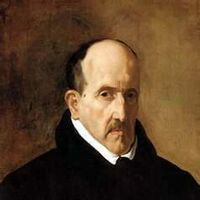
Luis de Góngora y Argote (Córdoba, 11 de julio de 1561 – ibídem, 23 de mayo de 1627) Poeta español. Nacido en el seno de una familia acomodada, estudió en la Universidad de Salamanca. Nombrado racionero en la catedral de Córdoba, desempeñó varias funciones que le brindaron la posibilidad de viajar por España. Su vida disipada y sus composiciones profanas le valieron pronto una amonestación del obispo (1588). Su fama fue enorme durante el Barroco, aunque su prestigio y el conocimiento de su obra decayeron luego hasta bien entrado el siglo XX, cuando la celebración del tercer centenario de su muerte (en 1927) congregó a los mejores poetas y literatos españoles de la época (conocidos desde entonces como la Generación del 27) y supuso su definitiva revalorización crítica.
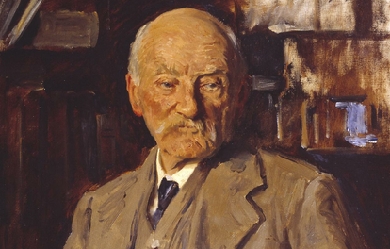
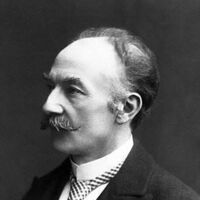
Thomas Hardy (2 June 1840 – 11 January 1928) was an English novelist and poet. While his works typically belong to the Naturalism movement, several poems display elements of the previous Romantic and Enlightenment periods of literature, such as his fascination with the supernatural. While he regarded himself primarily as a poet who composed novels mainly for financial gain, he became and continues to be widely regarded for his novels, such as Tess of the d'Urbervilles and Far from the Madding Crowd. Hardy's poetry, first published in his fifties, has come to be as well regarded as his novels and has had a significant influence over modern English poetry, especially after The Movement poets of the 1950s and 1960s cited Hardy as a major figure.
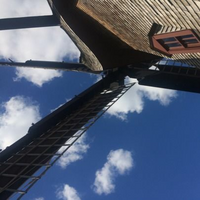
Hello. My name is Mike. I'm a 30something turning 102 this year. I'm the father to an amazing little girl who I'm unable to see as much as I would like, because I was unable to save her from a lifetime of pain. On this page you'll hear me drone on about topics such as this, being a victim of partners and parents with personality disorders, OCD, PTSD, suicidal ideation, and the occasional nonsensical poem about a snail or a garden gnome. There are horrible people in the world, and many of them are inescapable, and most of you would not believe the chaotic hell my life has led me through. But I have always tried to be the sort of person who I wish others would be. It's so much harder to be a bad person than a good person. Given the issues in my life, I might suffer hazards that would prevent me from furthering this message, so let me attempt to do so here. Be a good person. Know that nothing you do will ever change the world, and that all the help you give to others will ultimately be pointless. But that shouldn't stop you from trying to be the best person you can be. Live as altruistically and conscientiously towards others as possible. Hold open doors, be humble, apologize, offer help. If you see someone in need, don't wait for someone else to come along, because they might not. If you see a need, fill a need. Treat others with kindness and fairness, empathy and equity. If you hurt someone, find out how you can prevent yourself from doing so again in the future. Let people in when you're driving, spare some change to panhandlers, defend kids and animals when you see they're in trouble. The meaning of life is progress. Without growth, there can only be decay. It's too late for humanity as a species, but if everyone reading this could just try a little harder, maybe life wouldn't have to be so unfair. I want to take the time to thank those who follow me directly, as well as those who view my poems in passing. It does not go undetected or unappreciated, truly. Thank you for your support. I hope you all find whatever you’re looking for.
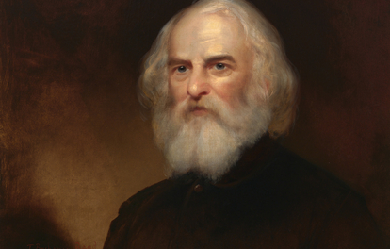
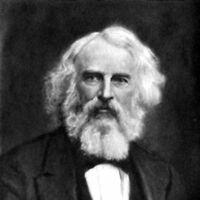
Henry Wadsworth Longfellow (February 27, 1807 – March 24, 1882) was an American poet and educator whose works include "Paul Revere's Ride", The Song of Hiawatha, and Evangeline. He was also the first American to translate Dante Alighieri's The Divine Comedy and was one of the five Fireside Poets. Longfellow was born in Portland, Maine, then part of Massachusetts, and studied at Bowdoin College. After spending time in Europe he became a professor at Bowdoin and, later, at Harvard College. His first major poetry collections were Voices of the Night (1839) and Ballads and Other Poems (1841). Longfellow retired from teaching in 1854 to focus on his writing, living the remainder of his life in Cambridge, Massachusetts, in a former headquarters of George Washington. His first wife, Mary Potter, died in 1835 after a miscarriage. His second wife, Frances Appleton, died in 1861 after sustaining burns from her dress catching fire. After her death, Longfellow had difficulty writing poetry for a time and focused on his translation. He died in 1882.
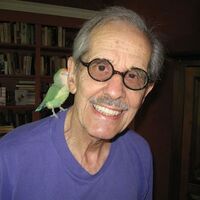
I was born in Hamilton, Ohio, in 1925, a confession that I am an old geezer. I served in the infantry during World War II, was wounded and discharged in 1946. I then obtained a B.A. degree with honors in English in 1949. Subsequently I taught in Cincinnati public schools and at the University of Cincinnati for the next 35 years. My poetry has appeared in: * Wall Street Journal * Hellas * Lyric * Envoi * Midwest Poetry Review (a sonnet won awards) * Aethlon * Light * Poet's View * Classical Outlook * Mind over Matter Several books have been self-published but Wormwood and Whines, a compilation of many of my poems, was published by Superior Books in 1999.
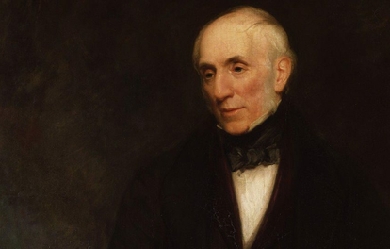
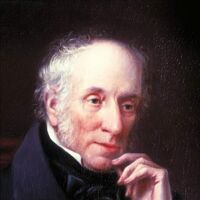
William Wordsworth (7 April 1770 – 23 April 1850) was a major English Romantic poet who, with Samuel Taylor Coleridge, helped to launch the Romantic Age in English literature with the 1798 joint publication Lyrical Ballads. Wordsworth's magnum opus is generally considered to be The Prelude, a semiautobiographical poem of his early years which he revised and expanded a number of times. It was posthumously titled and published, prior to which it was generally known as the poem "to Coleridge". Wordsworth was Britain's Poet Laureate from 1843 until his death in 1850. Early life The second of five children born to John Wordsworth and Ann Cookson, William Wordsworth was born on 7 April 1770 in Wordsworth House in Cockermouth, Cumberland—part of the scenic region in northwest England, the Lake District. His sister, the poet and diarist Dorothy Wordsworth, to whom he was close all his life, was born the following year, and the two were baptised together. They had three other siblings: Richard, the eldest, who became a lawyer; John, born after Dorothy, who went to sea and died in 1805 when the ship of which he was Master, the Earl of Abergavenny, was wrecked off the south coast of England; and Christopher, the youngest, who entered the Church and rose to be Master of Trinity College, Cambridge. Their father was a legal representative of James Lowther, 1st Earl of Lonsdale and, through his connections, lived in a large mansion in the small town. Wordsworth, as with his siblings, had little involvement with their father, and they would be distant from him until his death in 1783. Wordsworth's father, although rarely present, did teach him poetry, including that of Milton, Shakespeare and Spenser, in addition to allowing his son to rely on his own father's library. Along with spending time reading in Cockermouth, Wordsworth would also stay at his mother's parents house in Penrith, Cumberland. At Penrith, Wordsworth was exposed to the moors. Wordsworth could not get along with his grandparents and his uncle, and his hostile interactions with them distressed him to the point of contemplating suicide. After the death of their mother, in 1778, John Wordsworth sent William to Hawkshead Grammar School in Lancashire and Dorothy to live with relatives in Yorkshire; she and William would not meet again for another nine years. Although Hawkshead was Wordsworth's first serious experience with education, he had been taught to read by his mother and had attended a tiny school of low quality in Cockermouth. After the Cockermouth school, he was sent to a school in Penrith for the children of upper-class families and taught by Ann Birkett, a woman who insisted on instilling in her students traditions that included pursuing both scholarly and local activities, especially the festivals around Easter, May Day, and Shrove Tuesday. Wordsworth was taught both the Bible and the Spectator, but little else. It was at the school that Wordsworth was to meet the Hutchinsons, including Mary, who would be his future wife. Wordsworth made his debut as a writer in 1787 when he published a sonnet in The European Magazine. That same year he began attending St John's College, Cambridge, and received his B.A. degree in 1791. He returned to Hawkshead for his first two summer holidays, and often spent later holidays on walking tours, visiting places famous for the beauty of their landscape. In 1790, he took a walking tour of Europe, during which he toured the Alps extensively, and visited nearby areas of France, Switzerland, and Italy. Relationship with Annette Vallon In November 1791, Wordsworth visited Revolutionary France and became enthralled with the Republican movement. He fell in love with a French woman, Annette Vallon, who in 1792 gave birth to their child, Caroline. Because of lack of money and Britain's tensions with France, he returned alone to England the next year. The circumstances of his return and his subsequent behaviour raise doubts as to his declared wish to marry Annette, but he supported her and his daughter as best he could in later life. The Reign of Terror estranged him from the Republican movement, and war between France and Britain prevented him from seeing Annette and Caroline again for several years. There are strong suggestions that Wordsworth may have been depressed and emotionally unsettled in the mid-1790s. With the Peace of Amiens again allowing travel to France, in 1802 Wordsworth and his sister, Dorothy, visited Annette and Caroline in Calais. The purpose of the visit was to pave the way for his forthcoming marriage to Mary Hutchinson, and a mutually agreeable settlement was reached regarding Wordsworth's obligations. Afterwards he wrote the poem "It is a beauteous evening, calm and free," recalling his seaside walk with his daughter, whom he had not seen for ten years. At the conception of this poem, he had never seen his daughter before. The occurring lines reveal his deep love for both child and mother. First publication and Lyrical Ballads In his "Preface to Lyrical Ballads", which is called the "manifesto" of English Romantic criticism, Wordsworth calls his poems "experimental." The year 1793 saw Wordsworth's first published poetry with the collections An Evening Walk and Descriptive Sketches. He received a legacy of £900 from Raisley Calvert in 1795 so that he could pursue writing poetry. That year, he met Samuel Taylor Coleridge in Somerset. The two poets quickly developed a close friendship. In 1797, Wordsworth and his sister Dorothy moved to Alfoxton House, Somerset, just a few miles away from Coleridge's home in Nether Stowey. Together, Wordsworth and Coleridge (with insights from Dorothy) produced Lyrical Ballads (1798), an important work in the English Romantic movement. The volume gave neither Wordsworth's nor Coleridge's name as author. One of Wordsworth's most famous poems, "Tintern Abbey", was published in the work, along with Coleridge's "The Rime of the Ancient Mariner". The second edition, published in 1800, had only Wordsworth listed as the author, and included a preface to the poems, which was augmented significantly in the 1802 edition. This Preface to Lyrical Ballads is considered a central work of Romantic literary theory. In it, Wordsworth discusses what he sees as the elements of a new type of poetry, one based on the "real language of men" and which avoids the poetic diction of much 18th-century poetry. Here, Wordsworth gives his famous definition of poetry as "the spontaneous overflow of powerful emotions recollected in tranquility: it takes its origin from emotion recollected in tranquility." A fourth and final edition of Lyrical Ballads was published in 1805. The Borderers From 1795 to 1797, he wrote his only play, The Borderers, a verse tragedy set during the reign of King Henry III of England when Englishmen of the north country were in conflict with Scottish rovers. Wordsworth attempted to get the play staged in November 1797, but it was rejected by Thomas Harris, theatre manager of Covent Garden, who proclaimed it "impossible that the play should succeed in the representation". The rebuff was not received lightly by Wordsworth, and the play was not published until 1842, after substantial revision. Germany and move to the Lake District Wordsworth, Dorothy and Coleridge travelled to Germany in the autumn of 1798. While Coleridge was intellectually stimulated by the trip, its main effect on Wordsworth was to produce homesickness. During the harsh winter of 1798–99, Wordsworth lived with Dorothy in Goslar, and, despite extreme stress and loneliness, he began work on an autobiographical piece later titled The Prelude. He wrote a number of famous poems, including "The Lucy poems". He and his sister moved back to England, now to Dove Cottage in Grasmere in the Lake District, and this time with fellow poet Robert Southey nearby. Wordsworth, Coleridge and Southey came to be known as the "Lake Poets". Through this period, many of his poems revolve around themes of death, endurance, separation and grief. Marriage and children In 1802, after Wordsworth's return from his trip to France with Dorothy to visit Annette and Caroline, Lowther's heir, William Lowther, 1st Earl of Lonsdale, paid the ₤4, debt owed to Wordsworth's father incurred through Lowther's failure to pay his aide. Later that year, on October 4, Wordsworth married a childhood friend, Mary Hutchinson. Dorothy continued to live with the couple and grew close to Mary. The following year, Mary gave birth to the first of five children, three of whom predeceased William and Mary: * John Wordsworth (18 June 1803 – 1875). * Dora Wordsworth (16 August 1804 – 9 July 1847). * Thomas Wordsworth (15 June 1806 – 1 December 1812). * Catherine Wordsworth (6 September 1808 – 4 June 1812). * William "Willy" Wordsworth (12 May 1810 – 1883). Autobiographical work and Poems in Two Volumes Wordsworth had for years been making plans to write a long philosophical poem in three parts, which he intended to call The Recluse. He had in 1798–99 started an autobiographical poem, which he never named but called the "poem to Coleridge", which would serve as an appendix to The Recluse. In 1804, he began expanding this autobiographical work, having decided to make it a prologue rather than an appendix to the larger work he planned. By 1805, he had completed it, but refused to publish such a personal work until he had completed the whole of The Recluse. The death of his brother, John, in 1805 affected him strongly. The source of Wordsworth's philosophical allegiances as articulated in The Prelude and in such shorter works as "Lines composed a few miles above Tintern Abbey" has been the source of much critical debate. While it had long been supposed that Wordsworth relied chiefly on Coleridge for philosophical guidance, more recent scholarship has suggested that Wordsworth's ideas may have been formed years before he and Coleridge became friends in the mid 1790s. While in Revolutionary Paris in 1792, the 22-year-old Wordsworth made the acquaintance of the mysterious traveller John "Walking" Stewart (1747–1822), who was nearing the end of a thirty-years' peregrination from Madras, India, through Persia and Arabia, across Africa and all of Europe, and up through the fledgling United States. By the time of their association, Stewart had published an ambitious work of original materialist philosophy entitled The Apocalypse of Nature (London, 1791), to which many of Wordsworth's philosophical sentiments are likely indebted. In 1807, his Poems in Two Volumes were published, including "Ode: Intimations of Immortality from Recollections of Early Childhood". Up to this point Wordsworth was known publicly only for Lyrical Ballads, and he hoped this collection would cement his reputation. Its reception was lukewarm, however. For a time (starting in 1810), Wordsworth and Coleridge were estranged over the latter's opium addiction. Two of his children, Thomas and Catherine, died in 1812. The following year, he received an appointment as Distributor of Stamps for Westmorland, and the £400 per year income from the post made him financially secure. His family, including Dorothy, moved to Rydal Mount, Ambleside (between Grasmere and Rydal Water) in 1813, where he spent the rest of his life. The Prospectus In 1814 he published The Excursion as the second part of the three-part The Recluse. He had not completed the first and third parts, and never would. He did, however, write a poetic Prospectus to "The Recluse" in which he lays out the structure and intent of the poem. The Prospectus contains some of Wordsworth's most famous lines on the relation between the human mind and nature: My voice proclaims How exquisitely the individual Mind (And the progressive powers perhaps no less Of the whole species) to the external World Is fitted:--and how exquisitely, too, Theme this but little heard of among Men, The external World is fitted to the Mind. Some modern critics[who?] recognise a decline in his works beginning around the mid-1810s. But this decline was perhaps more a change in his lifestyle and beliefs, since most of the issues that characterise his early poetry (loss, death, endurance, separation and abandonment) were resolved in his writings. But, by 1820, he enjoyed the success accompanying a reversal in the contemporary critical opinion of his earlier works. Following the death of his friend the painter William Green in 1823, Wordsworth mended relations with Coleridge. The two were fully reconciled by 1828, when they toured the Rhineland together. Dorothy suffered from a severe illness in 1829 that rendered her an invalid for the remainder of her life. In 1835, Wordsworth gave Annette and Caroline the money they needed for support. The Poet Laureate and other honours Wordsworth received an honorary Doctor of Civil Law degree in 1838 from Durham University, and the same honour from Oxford University the next year. In 1842 the government awarded him a civil list pension amounting to £300 a year. With the death in 1843 of Robert Southey, Wordsworth became the Poet Laureate. He initially refused the honour, saying he was too old, but accepted when Prime Minister Robert Peel assured him "you shall have nothing required of you" (he became the only laureate to write no official poetry). When his daughter, Dora, died in 1847, his production of poetry came to a standstill. Death William Wordsworth died by re-aggravating a case of pleurisy on 23 April 1850, and was buried at St. Oswald's church in Grasmere. His widow Mary published his lengthy autobiographical "poem to Coleridge" as The Prelude several months after his death. Though this failed to arouse great interest in 1850, it has since come to be recognised as his masterpiece. Major works Lyrical Ballads, with a Few Other Poems (1798) * "Simon Lee" * "We are Seven" * "Lines Written in Early Spring" * "Expostulation and Reply" * "The Tables Turned" * "The Thorn" * "Lines Composed A Few Miles above Tintern Abbey" Lyrical Ballads, with Other Poems (1800) * Preface to the Lyrical Ballads * "Strange fits of passion have I known"[14] * "She Dwelt among the Untrodden Ways"[14] * "Three years she grew"[14] * "A Slumber Did my Spirit Seal"[14] * "I travelled among unknown men"[14] * "Lucy Gray" * "The Two April Mornings" * "Nutting" * "The Ruined Cottage" * "Michael" * "The Kitten At Play" Poems, in Two Volumes (1807) * "Resolution and Independence" * "I Wandered Lonely as a Cloud" Also known as "Daffodils" * "My Heart Leaps Up" * "Ode: Intimations of Immortality" * "Ode to Duty" * "The Solitary Reaper" * "Elegiac Stanzas" * "Composed upon Westminster Bridge, September 3, 1802" * "London, 1802" * "The World Is Too Much with Us" * Guide to the Lakes (1810) * The Excursion (1814) * Laodamia (1815, 1845) * The Prelude (1850) References Wikipedia – http://en.wikipedia.org/wiki/William_Wordsworth

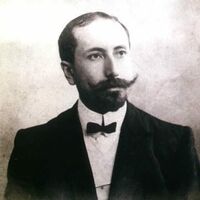
Amado Ruiz de Nervo y Ordaz (Tepic, Distrito Militar de Tepic, Jalisco, República Restaurada, 27 de agosto de 1870-Montevideo, Uruguay, 24 de mayo de 1919), más conocido como Amado Nervo, fue un poeta y escritor mexicano, perteneciente al movimiento modernista. Fue miembro correspondiente de la Academia Mexicana de la Lengua, pero no pudo serlo de número por residir en el extranjero.

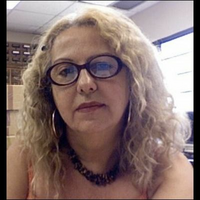
Doris Melo Mendoza,(1948-) Nació en Santo Domingo, República Dominicana. Vive en Puerto Rico desde 1989. Obtuvo un grado de Licenciada en Psicología clínica en 1975 de la Universidad Autónoma de Santo Domingo. En el 2004 obtuvo su maestría en Artes con concentración en Estudios Hispánicos y un Doctorado en Filosofía con concentración en Literatura Hispanoamericana, ambos de la Universidad de Puerto Rico en Río Piedras. Ha publicado numerosos ensayos y artículos en revistas especializadas en literatura en Hispanoamerica y España. Algunos de sus poemas han aparecido en varias antologías como "Pinceladas y relatos (2010), Prosa, poesía y artistas plásticos".(2011), "Antología de mujeres". Ha prologado varios libros como: “Arena, mar y viento”. (2010) del poeta español Teo Revilla Bravo, “La mujer espiral” (2012) de la poeta dominicana Jennet Tineo, “El espacio mítico de la palabra en el desmadejar del tiempo: en el poemario “El ave rasga la memoria” de Valentín Amaro. poeta dominicano.(2014), “Polifonía de voces que se resisten al encuentro de multiples mundos de una conciencia poética”. Del poeta español José Huete García entre otros. Como poeta ha publicado dieciocho libros: Solo de pasión, soledades y otras ausencias en abril del (2010) y El olor de la palabra rota en septiembre del (2011) , Rasgada memoria (2012) En ese espacio de nadie donde gravita la prudencia.(2013), "Donde habita el recuerdo" (2017) , "En esta brevedad que se dispersa "(2017, entre otros. Además escribe crítica literaria. Ha publicado el trabajo crítico sobre teatro: "Mito y tragedia en el teatro hispanoamericano y dominicano del siglo XX" (2011 ) "La agonía, el esplendor y la locura en el arte a través del tiempo" (2018) "El devenir: de lo disoluto a la enajenación en los poetas malditos" (2018) "Ensayos de crítica literaria: prosa y poesía. (2017)" entre otros. Además comparte poemas en : La antología "Rompamos el silencio Amazonas" editado en alemán y español por Katia Japa. Alemania (2014.) Estudió Artes Plásticas: dibujo, pintura, litografía y xilografía. Idiomas: francés, italiano, portugués y latín en la Universidad de Puerto Rico en Río Piedras. Ha sido profesora del departamento de Español y Literatura y Humanidades en Estudios Generales, en las Universidades de Puerto Rico, Recinto de Río Piedras y actualmente enseña en La Escuela de Artes Plásticas de San Juan donde enseña: Redacción, Humanidades y tesina.
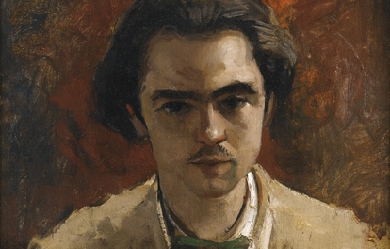
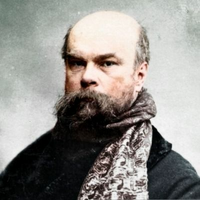
Paul Verlaine est un écrivain et poète français du xixe siècle, né à Metz (Moselle) le 30 mars 1844 et mort à Paris le 8 janvier 1896 (à 51 ans). Il s'essaie à la poésie et publie son premier recueil, Poèmes saturniens en 1866, à 22 ans. Sa vie est bouleversée quand il rencontre Arthur Rimbaud en septembre 1871. Leur vie amoureuse tumultueuse et errante en Angleterre et en Belgique débouche sur la scène violente où, à Bruxelles, Verlaine blesse superficiellement au poignet celui qu'il appelle son « époux infernal » : jugé et condamné, il reste en prison jusqu'au début de 1875, renouant avec le catholicisme de son enfance et écrivant des poèmes qui prendront place dans ses recueils suivants : Sagesse (1880), Jadis et Naguère (1884) et Parallèlement (1889). Usé par l'alcool et la maladie, Verlaine meurt à 51 ans, le 8 janvier 1896, d'une pneumonie aiguë. Il est inhumé à Paris au cimetière des Batignolles (11e division). Archétype du poète maudit, Verlaine est reconnu comme un maître par la génération suivante. Son style — fait de musicalité et de fluidité jouant avec les rythmes impairs — et la tonalité de nombre de ses poèmes — associant mélancolie et clairs-obscurs — révèlent, au-delà de l'apparente simplicité formelle, une profonde sensibilité, en résonance avec l'inspiration de certains artistes contemporains, des peintres impressionnistes ou des compositeurs (tels Reynaldo Hahn, Gabriel Fauré et Claude Debussy, qui mettront d'ailleurs en musique plusieurs de ses poèmes). Enfance Après treize ans de mariage, Nicolas-Auguste Verlaine et son épouse Élisa-Stéphanie Dehée donnent naissance, le 30 mars 1844, au 2 rue de la Haute-Pierre, à Metz, à un fils qu'ils prénomment Paul-Marie en reconnaissance à la Vierge Marie pour cette naissance tardive, Élisa ayant fait auparavant trois fausses couches. Catholiques, ils le font baptiser en l'église Notre-Dame de Metz. Paul restera le fils unique de cette famille de petite-bourgeoisie assez aisée qui élève aussi, depuis 1836, une cousine orpheline prénommée Élisa. Son père, militaire de carrière, atteint le grade de capitaine avant de démissionner de l'armée en 1851 : la famille Verlaine quitte alors Metz pour Paris. Enfant aimé et plutôt appliqué, il est mis en pension à l'institution Landry, 32 rue Chaptal, les enfants pensionnaires à Landry suivent leurs cours au lycée Condorcet. Paul Verlaine devient un adolescent difficile, et obtient finalement son baccalauréat en 1862. Entrée dans la vie adulte C'est durant sa jeunesse qu'il s'essaie à la poésie. En effet, en 1860, la pension est pour lui source d'ennui et de dépaysement. Admirateur de Baudelaire, et s'intéressant à la faune africaine, il exprime son mal-être dû à l'éloignement de son foyer, à travers une poésie dénuée de tout message si ce n'est celui de ses sentiments, Les Girafes. « Je crois que les longs cous jamais ne se plairont/ Dans ce lieu si lointain, dans ce si bel endroit/ Qui est mon Alaska, pays où nul ne va / Car ce n'est que chez eux que comblés ils seront ». Ce court poème en quatre alexandrins reste sa première approche sur le domaine poétique, même s'il ne sera publié qu'à titre posthume[réf. nécessaire]. Bachelier, il s'inscrit en faculté de droit, mais abandonne ses études, leur préférant la fréquentation des cafés et des cercles littéraires parisiens. Il s'intéresse plus sérieusement à la poésie et, en août 1863, une revue publie son premier poème connu de son vivant : Monsieur Prudhomme, portrait satirique du bourgeois qu'il reprendra dans son premier recueil. Il collabore au premier Parnasse contemporain et publie à 22 ans en 1866 les Poèmes saturniens qui traduisent l'influence de Baudelaire, mais aussi une musique personnelle orientée vers « la Sensation rendue ». En 1869, paraît le petit recueil Fêtes galantes, fantaisies inspirées par les toiles des peintres du xviiie siècle que le Louvre vient d'exposer dans de nouvelles salles. Dans la même période, son père, inquiet de son avenir, le fait entrer en 1864 comme employé dans une compagnie d'assurance, puis, quelques mois plus tard, à la mairie du 9e arrondissement, puis à l'hôtel de ville de Paris. Il vit toujours chez ses parents et, après le décès du père en décembre 1865, chez sa mère avec laquelle il entretiendra une relation de proximité et de violence toute sa vie. Paul Verlaine est aussi très proche de sa chère cousine Élisa, orpheline recueillie dès 183611 et élevée par les Verlaine avec leur fils : il souhaitait secrètement l'épouser, mais elle se marie en 1861 avec un entrepreneur aisé (il possède une sucrerie dans le Nord) ce qui permettra à Élisa de l'aider à faire paraître son premier recueil (Poèmes saturniens, 1866). La mort en couches en 1867 de celle dont il restait amoureux le fait basculer un peu plus dans l'excès d'alcool qui le rend violent : il tente même plusieurs fois de tuer sa mère. Celle-ci l'encourage à épouser Mathilde Mauté qu'un ami lui a fait rencontrer : il lui adresse des poèmes apaisés et affectueux qu'il reprendra en partie dans La Bonne Chanson, recueil publié le 12 juin 1870, mais mis en vente seulement l'année suivante, après la guerre et la Commune. Le mariage a lieu le 11 août 1870 (Paul a 26 ans et Mathilde, 17) ; un enfant, Georges, naît le 30 octobre 1871. Les références Wikipedia—https://fr.wikipedia.org/wiki/Paul_Verlaine
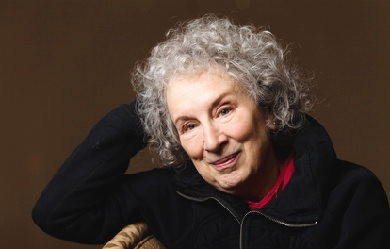
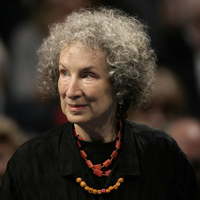
Margaret Eleanor Atwood (born November 18, 1939) is a Canadian poet, novelist, literary critic, essayist, teacher, environmental activist, and inventor. Since 1961, she has published 18 books of poetry, 18 novels, 11 books of non-fiction, nine collections of short fiction, eight children's books, and two graphic novels, and a number of small press editions of both poetry and fiction. Atwood has won numerous awards and honors for her writing, including two Booker Prizes, the Arthur C. Clarke Award, the Governor General's Award, the Franz Kafka Prize, Princess of Asturias Awards, and the National Book Critics and PEN Center USA Lifetime Achievement Awards. A number of her works have been adapted for film and television.
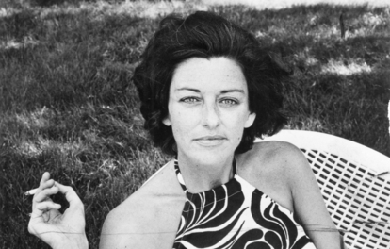
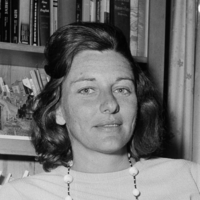
Anne Sexton (November 9, 1928, Newton, Massachusetts – October 4, 1974, Weston, Massachusetts) was an American poetese, known for her highly personal, confessional verse. She won the Pulitzer Prize for poetry in 1967. Themes of her poetry include her suicidal tendencies, long battle against depression and various intimate details from her private life, including her relationships with her husband and children. Sexton suffered from severe mental illness for much of her life, her first manic episode taking place in 1954.
▪️▪️▪️▪️▪️▪️▪️▪️▪️▪️ ▪️▪️▪️▪️▪️▪️▪️▪️ ▪️▪️▪️▪️▪️▪️ ▪️▪️▪️▪️ ▪️▪️▪️ ▪️▪️ ▪️ Finding my way with writing and poetry. 🪶The world makes more sense with poetry. Connect with me on: Tumblr: 1introvertedsage My Poetic Side: Introverted Sage All Poetry: Introverted Sage Substack: Introverted Sage
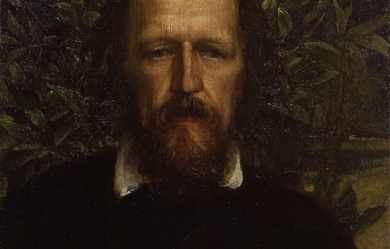
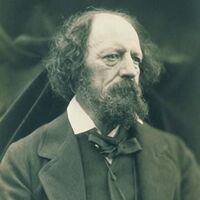
Alfred Tennyson, 1st Baron Tennyson, FRS (6 August 1809 – 6 October 1892) was Poet Laureate of the United Kingdom during much of Queen Victoria's reign and remains one of the most popular poets in the English language. A number of phrases from Tennyson’s work have become commonplaces of the English language, including “Nature, red in tooth and claw”, “'Tis better to have loved and lost / Than never to have loved at all”, “Theirs not to reason why, / Theirs but to do and die”, “My strength is as the strength of ten, / Because my heart is pure”, “Knowledge comes, but Wisdom lingers”, and “The old order changeth, yielding place to new”. He is the ninth most frequently quoted writer in The Oxford Dictionary of Quotations.

I started dabbling at age 13, and after a while, I was writing full poems, however, I only have poetry from when I was 16 and up. I am now 28, and I have found that it is so much easier to say things through poetry than it is to verbalize them. I draw inspiration for my poetry from writers, musicians, movies, daily interactions, my faith, and much more. As far as writers go, when I was younger I got introduced to Langston Hughes, and I have learned to take from his style of writing. I also enjoy some good old Shakespeare every once in a while. Most of my influence, however, comes from music; I draw my influence from genres that include but are not limited to, hip-hop, folk, rock, and country. Another thing that really impacts my poetry are events that have taken place in my life. Movie characters and themes also have a chance to have their fair share of influence in my poetry. I am a Christ-follower first and foremost, so, beneath most of my poems stories, there is a spiritual undertone. My plainly faith-based poems, however, are a written (hard) memory of the headspace that I was in at that time in my life. People can create all sorts of art without having to fabricate who they are, and without compromising who they are as a person; it's being able to take from other peoples experiences and write about them, based on the writer's interpretation, that can set a writer apart from others. I write mainly Free Verse poetry, because to me poetry is a lot of self-expression, and if I were to follow the set guidelines of a certain type of poetry, I would then be forfeiting my creative license. Sometimes, however, I like to take from certain styles of poetry, especially when I am trying to convey a particular emotion, for example, I not only write Free Verse but, I also have learned to take from styles, such as Blank Verse & Limericks. I have a friend who said this, "If there is one thing I have learned about writing over the years it is that the best work comes from writing without the audience in mind." I find this quote to be accurate for not only my writing but for writing in general. Love y'all!

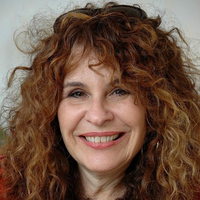
Gioconda Belli, Managua, 9 de diciembre de 1948, es una poetisa y novelista nicaragüense que goza de amplio reconocimiento internacional. Junto a Ernesto Cardenal y Claribel Alegría, inició la renovación de la poesía en su país. Un marcado acento erótico impregna buena parte de su obra, aunque la última producción denota una gran preocupación por los cambios políticos de su patria.
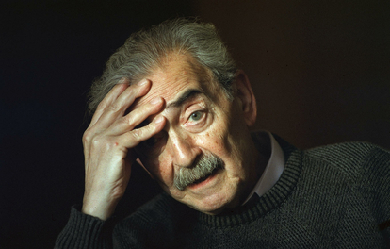
Juan Gelman (Buenos Aires, 3 de mayo de 1930 - México, D. F., 14 de enero de 2014) fue un prestigioso poeta argentino. Escritor desde su niñez, se desempeñó como periodista, traductor, y militante en organizaciones guerrilleras. Exiliado durante la dictadura militar iniciada en 1976, retornó a la Argentina en 1988 aunque se radicó en México. Buena parte de su vida y obra literaria se vieron signadas por el secuestro y desaparición de sus hijos y la búsqueda de su nieta nacida en cautiverio. Fue el cuarto argentino galardonado con el Premio Miguel de Cervantes, luego de Jorge Luis Borges, Ernesto Sabato y Adolfo Bioy Casares. Se lo considera uno de los grandes poetas contemporáneos de habla hispana, y un «expresionista del dolor». A su muerte, la Presidencia de la Nación Argentina decretó tres días de duelo nacional.
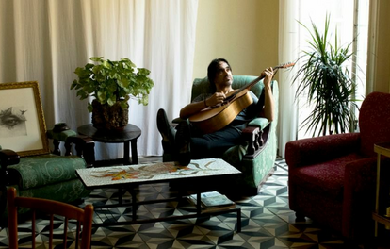
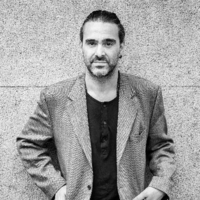
Pablo Sciuto (Montevideo, 1979) cantautor hispano-uruguayo radicado en España, dueño de un lenguaje poético que conjuga la metafísica y la astronomía, que vuelca en sus canciones. Creador incansable, capaz de beber de la cercanía de su admirado y coterráneo Mario Benedetti, como también fundirse en las leyes físicas y astronómicas de Stephen Hawking, bucear en la melancolía e intimidad de Alejandra Pizarnik y esconderse en las oscuridades del astillero de Juan Carlos Onetti. Ha compartido escenario y experiencias con artistas como Pablo Guerrero, Carlos Chaouen, Jorge Drexler, Gustavo Pena “El Príncipe” y Leo Minax con los que siente una conexión en el uso de la poesía para comunicar las más profundas emociones humanas, junto a los diversos estilos donde compone su peculiar música, entre jazz, bossa nova y candombe. Mencionado como autor destacado en el libro, “Y la palabra se hizo música: El canto emigrado de América Latina” (Fundación Autor, 2007) del prestigioso musicólogo español, Fernando González Lucini.
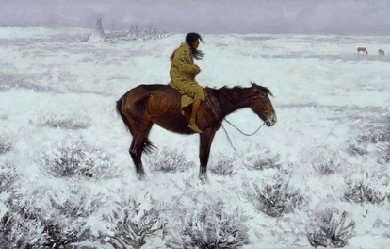
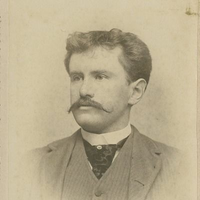
William Sydney Porter (September 11, 1862– June 5, 1910), known by his pen name O. Henry, was an American short story writer. His stories are known for their surprise endings. Biography Early life William Sidney Porter was born on September 11, 1862, in Greensboro, North Carolina. He changed the spelling of his middle name to Sydney in 1898. His parents were Dr. Algernon Sidney Porter (1825–88), a physician, and Mary Jane Virginia Swaim Porter (1833–65). William’s parents had married on April 20, 1858. When William was three, his mother died from tuberculosis, and he and his father moved into the home of his paternal grandmother. As a child, Porter was always reading, everything from classics to dime novels; his favorite works were Lane’s translation of One Thousand and One Nights and Burton’s Anatomy of Melancholy. Porter graduated from his aunt Evelina Maria Porter’s elementary school in 1876. He then enrolled at the Lindsey Street High School. His aunt continued to tutor him until he was fifteen. In 1879, he started working in his uncle’s drugstore in Greensboro, and on August 30, 1881, at the age of nineteen, Porter was licensed as a pharmacist. At the drugstore, he also showed off his natural artistic talents by sketching the townsfolk. Move to Texas Porter traveled with Dr. James K. Hall to Texas in March 1882, hoping that a change of air would help alleviate a persistent cough he had developed. He took up residence on the sheep ranch of Richard Hall, James’ son, in La Salle County and helped out as a shepherd, ranch hand, cook, and baby-sitter. While on the ranch, he learned bits of Spanish and German from the mix of immigrant ranch hands. He also spent time reading classic literature. Porter’s health did improve. He traveled with Richard to Austin in 1884, where he decided to remain and was welcomed into the home of Richard’s friends, Joseph Harrell and his wife. Porter resided with the Harrells for three years. He went to work briefly for the Morley Brothers Drug Company as a pharmacist. Porter then moved on to work for the Harrell Cigar Store located in the Driskill Hotel. He also began writing as a sideline and wrote many of his early stories in the Harrell house. As a young bachelor, Porter led an active social life in Austin. He was known for his wit, story-telling and musical talents. He played both the guitar and mandolin. He sang in the choir at St. David’s Episcopal Church and became a member of the “Hill City Quartette”, a group of young men who sang at gatherings and serenaded young women of the town. Porter met and began courting Athol Estes, then seventeen years old and from a wealthy family. Historians believe Porter met Athol at the laying of the cornerstone of the Texas State Capitol on March 2, 1885. Her mother objected to the match because Athol was ill, suffering from tuberculosis. On July 1, 1887, Porter eloped with Athol and were married in the parlor of the home of Reverend R. K. Smoot, pastor of the Central Presbyterian Church, where the Estes family attended church. The couple continued to participate in musical and theater groups, and Athol encouraged her husband to pursue his writing. Athol gave birth to a son in 1888, who died hours after birth, and then a daughter, Margaret Worth Porter, in September 1889. Porter’s friend Richard Hall became Texas Land Commissioner and offered Porter a job. Porter started as a draftsman at the Texas General Land Office (GLO) on January 12, 1887 at a salary of $100 a month, drawing maps from surveys and fieldnotes. The salary was enough to support his family, but he continued his contributions to magazines and newspapers. In the GLO building, he began developing characters and plots for such stories as “Georgia’s Ruling” (1900), and “Buried Treasure” (1908). The castle-like building he worked in was even woven into some of his tales such as "Bexar Scrip No. 2692" (1894). His job at the GLO was a political appointment by Hall. Hall ran for governor in the election of 1890 but lost. Porter resigned on January 21, 1891, the day after the new governor, Jim Hogg, was sworn in. The same year, Porter began working at the First National Bank of Austin as a teller and bookkeeper at the same salary he had made at the GLO. The bank was operated informally, and Porter was apparently careless in keeping his books and may have embezzled funds. In 1894, he was accused by the bank of embezzlement and lost his job but was not indicted at the time. He then worked full-time on his humorous weekly called The Rolling Stone, which he started while working at the bank. The Rolling Stone featured satire on life, people and politics and included Porter’s short stories and sketches. Although eventually reaching a top circulation of 1500, The Rolling Stone failed in April 1895, since the paper never provided an adequate income. However, his writing and drawings had caught the attention of the editor at the Houston Post. Porter and his family moved to Houston in 1895, where he started writing for the Post. His salary was only $25 a month, but it rose steadily as his popularity increased. Porter gathered ideas for his column by loitering in hotel lobbies and observing and talking to people there. This was a technique he used throughout his writing career. While he was in Houston, federal auditors audited the First National Bank of Austin and found the embezzlement shortages that led to his firing. A federal indictment followed, and he was arrested on charges of embezzlement. Flight and return Porter’s father-in-law posted bail to keep him out of jail. He was due to stand trial on July 7, 1896, but the day before, as he was changing trains to get to the courthouse, an impulse hit him. He fled, first to New Orleans and later to Honduras, with which the United States had no extradition treaty at that time. William lived in Honduras for only six months, until January 1897. There he became friends with Al Jennings, a notorious train robber, who later wrote a book about their friendship. He holed up in a Trujillo hotel, where he wrote Cabbages and Kings, in which he coined the term “banana republic” to qualify the country, a phrase subsequently used widely to describe a small, unstable tropical nation in Latin America with a narrowly focused, agrarian economy. Porter had sent Athol and Margaret back to Austin to live with Athol’s parents. Unfortunately, Athol became too ill to meet Porter in Honduras as he had planned. When he learned that his wife was dying, Porter returned to Austin in February 1897 and surrendered to the court, pending trial. Athol Estes Porter died from tuberculosis (then known as consumption) on July 25, 1897. Porter had little to say in his own defense at his trial and was found guilty on February 17, 1898 of embezzling $854.08. He was sentenced to five years in prison and imprisoned on March 25, 1898, at the Ohio Penitentiary in Columbus, Ohio. Porter was a licensed pharmacist and was able to work in the prison hospital as the night druggist. He was given his own room in the hospital wing, and there is no record that he actually spent time in the cell block of the prison. He had fourteen stories published under various pseudonyms while he was in prison but was becoming best known as “O. Henry”, a pseudonym that first appeared over the story “Whistling Dick’s Christmas Stocking” in the December 1899 issue of McClure’s Magazine. A friend of his in New Orleans would forward his stories to publishers so that they had no idea that the writer was imprisoned. Porter was released on July 24, 1901, for good behavior after serving three years. He reunited with his daughter Margaret, now age 11, in Pittsburgh, Pennsylvania, where Athol’s parents had moved after Porter’s conviction. Margaret was never told that her father had been in prison—just that he had been away on business. Later life and death Porter’s most prolific writing period started in 1902, when he moved to New York City to be near his publishers. While there, he wrote 381 short stories. He wrote a story a week for over a year for the New York World Sunday Magazine. His wit, characterization, and plot twists were adored by his readers but often panned by critics. Porter married again in 1907 to childhood sweetheart Sarah (Sallie) Lindsey Coleman, whom he met again after revisiting his native state of North Carolina. Sarah Lindsey Coleman was herself a writer and wrote a romanticized and fictionalized version of their correspondence and courtship in her novella Wind of Destiny. Porter was a heavy drinker, and by 1908, his markedly deteriorating health affected his writing. In 1909, Sarah left him, and he died on June 5, 1910, of cirrhosis of the liver, complications of diabetes, and an enlarged heart. After funeral services in New York City, he was buried in the Riverside Cemetery in Asheville, North Carolina. His daughter, Margaret Worth Porter, had a short writing career from 1913 to 1916. She married cartoonist Oscar Cesare of New York in 1916; they were divorced four years later. She died of tuberculosis in 1927 and is buried next to her father. Stories O. Henry’s stories frequently have surprise endings. In his day he was called the American answer to Guy de Maupassant. While both authors wrote plot twist endings, O. Henry’s stories were considerably more playful. His stories are also known for witty narration. Most of O. Henry’s stories are set in his own time, the early 20th century. Many take place in New York City and deal for the most part with ordinary people: policemen, waitresses, etc. O. Henry’s work is wide-ranging, and his characters can be found roaming the cattle-lands of Texas, exploring the art of the con-man, or investigating the tensions of class and wealth in turn-of-the-century New York. O. Henry had an inimitable hand for isolating some element of society and describing it with an incredible economy and grace of language. Some of his best and least-known work is contained in Cabbages and Kings, a series of stories each of which explores some individual aspect of life in a paralytically sleepy Central American town, while advancing some aspect of the larger plot and relating back one to another. Cabbages and Kings was his first collection of stories, followed by The Four Million. The second collection opens with a reference to Ward McAllister’s “assertion that there were only 'Four Hundred’ people in New York City who were really worth noticing. But a wiser man has arisen—the census taker—and his larger estimate of human interest has been preferred in marking out the field of these little stories of the ‘Four Million.’” To O. Henry, everyone in New York counted. He had an obvious affection for the city, which he called “Bagdad-on-the-Subway”, and many of his stories are set there—while others are set in small towns or in other cities. His final work was “Dream”, a short story intended for the magazine The Cosmopolitan but left incomplete at the time of his death. Among his most famous stories are: “The Gift of the Magi” about a young couple, Jim and Della, who are short of money but desperately want to buy each other Christmas gifts. Unbeknownst to Jim, Della sells her most valuable possession, her beautiful hair, in order to buy a platinum fob chain for Jim’s watch; while unbeknownst to Della, Jim sells his own most valuable possession, his watch, to buy jeweled combs for Della’s hair. The essential premise of this story has been copied, re-worked, parodied, and otherwise re-told countless times in the century since it was written. “The Ransom of Red Chief”, in which two men kidnap a boy of ten. The boy turns out to be so bratty and obnoxious that the desperate men ultimately pay the boy’s father $250 to take him back. “The Cop and the Anthem” about a New York City hobo named Soapy, who sets out to get arrested so that he can be a guest of the city jail instead of sleeping out in the cold winter. Despite efforts at petty theft, vandalism, disorderly conduct, and “mashing” with a young prostitute, Soapy fails to draw the attention of the police. Disconsolate, he pauses in front of a church, where an organ anthem inspires him to clean up his life—and is ironically charged for loitering and sentenced to three months in prison. “A Retrieved Reformation”, which tells the tale of safecracker Jimmy Valentine, recently freed from prison. He goes to a town bank to case it before he robs it. As he walks to the door, he catches the eye of the banker’s beautiful daughter. They immediately fall in love and Valentine decides to give up his criminal career. He moves into the town, taking up the identity of Ralph Spencer, a shoemaker. Just as he is about to leave to deliver his specialized tools to an old associate, a lawman who recognizes him arrives at the bank. Jimmy and his fiancée and her family are at the bank, inspecting a new safe when a child accidentally gets locked inside the airtight vault. Knowing it will seal his fate, Valentine opens the safe to rescue the child. However, much to Valentine’s surprise, the lawman denies recognizing him and lets him go. “The Duplicity of Hargraves”. A short story about a nearly destitute father and daughter’s trip to Washington, D.C. “The Caballero’s Way”, in which Porter’s most famous character, the Cisco Kid, is introduced. It was first published in 1907 in the July issue of Everybody’s Magazine and collected in the book Heart of the West that same year. In later film and TV depictions, the Kid would be portrayed as a dashing adventurer, perhaps skirting the edges of the law, but primarily on the side of the angels. In the original short story, the only story by Porter to feature the character, the Kid is a murderous, ruthless border desperado, whose trail is dogged by a heroic Texas Ranger. The twist ending is, unusually for Porter, tragic. Pen name Porter used a number of pen names (including “O. Henry” or “Olivier Henry”) in the early part of his writing career; other names included S.H. Peters, James L. Bliss, T.B. Dowd, and Howard Clark. Nevertheless, the name “O. Henry” seemed to garner the most attention from editors and the public, and was used exclusively by Porter for his writing by about 1902. He gave various explanations for the origin of his pen name. In 1909 he gave an interview to The New York Times, in which he gave an account of it: It was during these New Orleans days that I adopted my pen name of O. Henry. I said to a friend: “I’m going to send out some stuff. I don’t know if it amounts to much, so I want to get a literary alias. Help me pick out a good one.” He suggested that we get a newspaper and pick a name from the first list of notables that we found in it. In the society columns we found the account of a fashionable ball. “Here we have our notables,” said he. We looked down the list and my eye lighted on the name Henry, “That’ll do for a last name,” said I. “Now for a first name. I want something short. None of your three-syllable names for me.” “Why don’t you use a plain initial letter, then?” asked my friend. “Good,” said I, “O is about the easiest letter written, and O it is.” A newspaper once wrote and asked me what the O stands for. I replied, “O stands for Olivier, the French for Oliver.” And several of my stories accordingly appeared in that paper under the name Olivier Henry. William Trevor writes in the introduction to The World of O. Henry: Roads of Destiny and Other Stories (Hodder & Stoughton, 1973) that “there was a prison guard named Orrin Henry” in the Ohio State Penitentiary “whom William Sydney Porter... immortalised as O. Henry”. According to J. F. Clarke, it is from the name of the French pharmacist Etienne Ossian Henry, whose name is in the U. S. Dispensary which Porter used working in the prison pharmacy. Writer and scholar Guy Davenport offers his own hypothesis: “The pseudonym that he began to write under in prison is constructed from the first two letters of Ohio and the second and last two of penitentiary.” Legacy The O. Henry Award is a prestigious annual prize named after Porter and given to outstanding short stories. A film was made in 1952 featuring five stories, called O. Henry’s Full House. The episode garnering the most critical acclaim was “The Cop and the Anthem” starring Charles Laughton and Marilyn Monroe. The other stories are “The Clarion Call”, “The Last Leaf”, “The Ransom of Red Chief” (starring Fred Allen and Oscar Levant), and “The Gift of the Magi”. The O. Henry House and O. Henry Hall, both in Austin, Texas, are named for him. O. Henry Hall, now owned by the Texas State University System, previously served as the federal courthouse in which O. Henry was convicted of embezzlement. Porter has elementary schools named for him in Greensboro, North Carolina (William Sydney Porter Elementary) and Garland, Texas (O. Henry Elementary), as well as a middle school in Austin, Texas (O. Henry Middle School). The O. Henry Hotel in Greensboro is also named for Porter, as is US 29 which is O. Henry Boulevard. In 1962, the Soviet Postal Service issued a stamp commemorating O. Henry’s 100th birthday. On September 11, 2012, the U.S. Postal Service issued a stamp commemorating the 150th anniversary of O. Henry’s birth. On November 23, 2011, Barack Obama quoted O. Henry while granting pardons to two turkeys named “Liberty” and “Peace”. In response, political science professor P. S. Ruckman, Jr., and Texas attorney Scott Henson filed a formal application for a posthumous pardon in September 2012, the same month that the U.S. Postal Service issued its O. Henry stamp. Previous attempts were made to obtain such a pardon for Porter in the administrations of Woodrow Wilson, Dwight Eisenhower, and Ronald Reagan, but no one had ever bothered to file a formal application. Ruckman and Henson argued that Porter deserved a pardon because (1) he was a law-abiding citizen prior to his conviction; (2) his offense was minor; (3) he had an exemplary prison record; (4) his post-prison life clearly indicated rehabilitation; (5) he would have been an excellent candidate for clemency in his time, had he but applied for pardon; (6) by today’s standards, he remains an excellent candidate for clemency; and (7) his pardon would be a well-deserved symbolic gesture and more. O. Henry’s love of language inspired the O. Henry Pun-Off, an annual spoken word competition began in 1978 that takes place at the O. Henry House. Bibliography * Cabbages and Kings (1904) * The Four Million (1906), short stories * The Trimmed Lamp (1907), short stories: “The Trimmed Lamp”, “A Madison Square Arabian Night”, “The Rubaiyat of a Scotch Highball”, “The Pendulum”, “Two Thanksgiving Day Gentlemen”, “The Assessor of Success”, “The Buyer from Cactus City”, “The Badge of Policeman O’Roon”, “Brickdust Row”, “The Making of a New Yorker”, “Vanity and Some Sables”, “The Social Triangle”, “The Purple Dress”, "The Foreign Policy of Company 99", “The Lost Blend”, “A Harlem Tragedy”, “'The Guilty Party’”, “According to Their Lights”, “A Midsummer Knight’s Dream”, “The Last Leaf”, “The Count and the Wedding Guest”, “The Country of Elusion”, “The Ferry of Unfulfilment”, “The Tale of a Tainted Tenner”, “Elsie in New York” * Heart of the West (1907), short stories: “Hearts and Crosses”, “The Ransom of Mack”, “Telemachus, Friend”, “The Handbook of Hymen”, “The Pimienta Pancakes”, “Seats of the Haughty”, “Hygeia at the Solito”, “An Afternoon Miracle”, “The Higher Abdication”, "Cupid à la Carte", “The Caballero’s Way”, “The Sphinx Apple”, “The Missing Chord”, “A Call Loan”, “The Princess and the Puma”, “The Indian Summer of Dry Valley Johnson”, “Christmas by Injunction”, “A Chaparral Prince”, “The Reformation of Calliope” * The Voice of the City (1908), short stories: “The Voice of the City”, “The Complete Life of John Hopkins”, “A Lickpenny Lover”, “Dougherty’s Eye-opener”, “'Little Speck in Garnered Fruit’”, “The Harbinger”, “While the Auto Waits”, “A Comedy in Rubber”, “One Thousand Dollars”, “The Defeat of the City”, “The Shocks of Doom”, “The Plutonian Fire”, “Nemesis and the Candy Man”, “Squaring the Circle”, “Roses, Ruses and Romance”, “The City of Dreadful Night”, “The Easter of the Soul”, “The Fool-killer”, “Transients in Arcadia”, “The Rathskeller and the Rose”, “The Clarion Call”, “Extradited from Bohemia”, “A Philistine in Bohemia”, “From Each According to His Ability”, “The Memento” * The Gentle Grafter (1908), short stories: “The Octopus Marooned”, “Jeff Peters as a Personal Magnet”, “Modern Rural Sports”, “The Chair of Philanthromathematics”, “The Hand That Riles the World”, “The Exact Science of Matrimony”, “A Midsummer Masquerade”, “Shearing the Wolf”, “Innocents of Broadway”, “Conscience in Art”, “The Man Higher Up”, “Tempered Wind”, “Hostages to Momus”, “The Ethics of Pig” * Roads of Destiny (1909), short stories: “Roads of Destiny”, “The Guardian of the Accolade”, “The Discounters of Money”, “The Enchanted Profile”, “Next to Reading Matter”, “Art and the Bronco”, "Phœbe", “A Double-dyed Deceiver”, “The Passing of Black Eagle”, “A Retrieved Reformation”, “Cherchez la Femme”, “Friends in San Rosario”, “The Fourth in Salvador”, “The Emancipation of Billy”, “The Enchanted Kiss”, “A Departmental Case”, “The Renaissance at Charleroi”, “On Behalf of the Management”, “Whistling Dick’s Christmas Stocking”, “The Halberdier of the Little Rheinschloss”, “Two Renegades”, “The Lonesome Road” * Options (1909), short stories: “'The Rose of Dixie’”, “The Third Ingredient”, “The Hiding of Black Bill”, “Schools and Schools”, “Thimble, Thimble”, “Supply and Demand”, “Buried Treasure”, “To Him Who Waits”, “He Also Serves”, “The Moment of Victory”, “The Head-hunter”, “No Story”, “The Higher Pragmatism”, “Best-seller”, “Rus in Urbe”, “A Poor Rule” * Strictly Business (1910), short stories: “Strictly Business”, “The Gold That Glittered”, “Babes in the Jungle”, “The Day Resurgent”, “The Fifth Wheel”, “The Poet and the Peasant”, “The Robe of Peace”, “The Girl and the Graft”, “The Call of the Tame”, “The Unknown Quantity”, “The Thing’s the Play”, “A Ramble in Aphasia”, “A Municipal Report”, “Psyche and the Pskyscraper”, “A Bird of Bagdad”, “Compliments of the Season”, “A Night in New Arabia”, “The Girl and the Habit”, “Proof of the Pudding”, “Past One at Rooney’s”, “The Venturers”, “The Duel”, “'What You Want’” * Whirligigs (1910), short stories: “The World and the Door”, “The Theory and the Hound”, “The Hypotheses of Failure”, “Calloway’s Code”, “A Matter of Mean Elevation”, “Girl”, “Sociology in Serge and Straw”, “The Ransom of Red Chief”, “The Marry Month of May”, “A Technical Error”, “Suite Homes and Their Romance”, “The Whirligig of Life”, “A Sacrifice Hit”, “The Roads We Take”, “A Blackjack Bargainer, ”The Song and the Sergeant", “One Dollar’s Worth”, “A Newspaper Story”, “Tommy’s Burglar”, “A Chaparral Christmas Gift”, “A Little Local Colour”, “Georgia’s Ruling”, “Blind Man’s Holiday”, “Madame Bo-Peep of the Ranches” * Sixes and Sevens (1911), short stories: “The Last of the Troubadours”, “The Sleuths”, “Witches’ Loaves”, “The Pride of the Cities”, “Holding Up a Train”, “Ulysses and the Dogman”, “The Champion of the Weather”, “Makes the Whole World Kin”, “At Arms with Morpheus”, “A Ghost of a Chance”, “Jimmy Hayes and Muriel”, “The Door of Unrest”, “The Duplicity of Hargraves”, “Let Me Feel Your Pulse”, “October and June”, “The Church with an Overshot-Wheel”, “New York by Camp Fire Light”, “The Adventures of Shamrock Jolnes”, “The Lady Higher Up”, “The Greater Coney”, “Law and Order”, “Transformation of Martin Burney”, “The Caliph and the Cad”, “The Diamond of Kali”, “The Day We Celebrate” * Rolling Stones (1912), short stories: “The Dream”, “A Ruler of Men”, “The Atavism of John Tom Little Bear”, “Helping the Other Fellow”, “The Marionettes”, “The Marquis and Miss Sally”, “A Fog in Santone”, “The Friendly Call”, “A Dinner at———”, “Sound and Fury”, “Tictocq”, “Tracked to Doom”, “A Snapshot at the President”, “An Unfinished Christmas Story”, “The Unprofitable Servant”, “Aristocracy Versus Hash”, “The Prisoner of Zembla”, “A Strange Story”, “Fickle Fortune, or How Gladys Hustled”, “An Apology”, “Lord Oakhurst’s Curse”, "Bexar Scrip No. 2692” * Waifs and Strays (1917), short stories References Wikipedia—https://en.wikipedia.org/wiki/O._Henry
Cantautor uruguayo de Tupambaé Cerro Largo, nació el 14 de setiembre de 1988 en Santa Clara de Olimar. Comenzó su interés por la música a los 16 años de edad; su abuelo le regalo una guitarra después de la continua insistencia de su padre, de querer que un hijo fuera músico de el nombrado instrumento. De pequeño, en la familia veía esa costumbre y gusto por la música y el canto; todos los géneros eran aceptados al correr de las distintas ocasiones del año. Después de haber participado en un certamen de la voz en su pueblo natal, le tomo el gusto y la dedicación al canto y la guitarra. El apoyo de personas que ya tenían el conocimiento, fue fundamental para el inicio de lo que perduraría en su vida. Al poco tiempo de afirmar sus paso, comenzó a escribir la idea de lo que podría ser una canción en letra y música. Con los años y tantas curiosidades obtuvo mejoras musicales y literarias. Así comiensan las presentaciones en sencillos evento y reuniones de amigos, donde podia sentir el agrado de la adrenalina y espontánea música autodidacta. Con el tiempo y la insistencias por comprender ese mágico mundo, lo lleva a transitar junto con su crecimiento por razones y oportunidades de la vida, en el trabajo y la formación de un ser. Formo varios grupos y duos del folclor de su país, funcionando con ritmos y fusiones de las fronteras y distintos sonidos latinoamericanos. Graba su primer álbum en el año 2014 el cual se titulo " Mi padre el alambrador " el cual llevaría el nombre de la canción principal y la que le diera mas satisfacciones. Se encuentra con su identidad y conformidad en el tercer trabajo titulado "Huella Arachana" desde ahí la comodidad y seguridad de la linea a seguir con sus mejoras fue clara. La composición de canciones y música le despertó el interés por la poesía literaria; después de conocer personas con gran gusto he interés por la misma. Sus fragmentos apuntan a las experiencias de la vida cotidiana, la historia y su vivencias. Nombrado en distintos premios y reconocimientos como cantautor dentro y fuera del país, llevo a tomar con mas dedicación y seriedad la composición musical y literaria. Luis Arrúa canta y escribe inspirado en la vida cotidiana y sus inquietudes, siempre tratando dejar un mensaje y hacer buena utilidad de la canción y poesía.








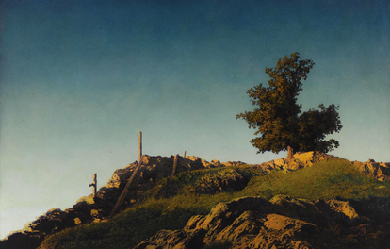
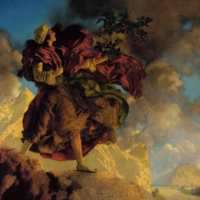
.jpg?locale=es)
